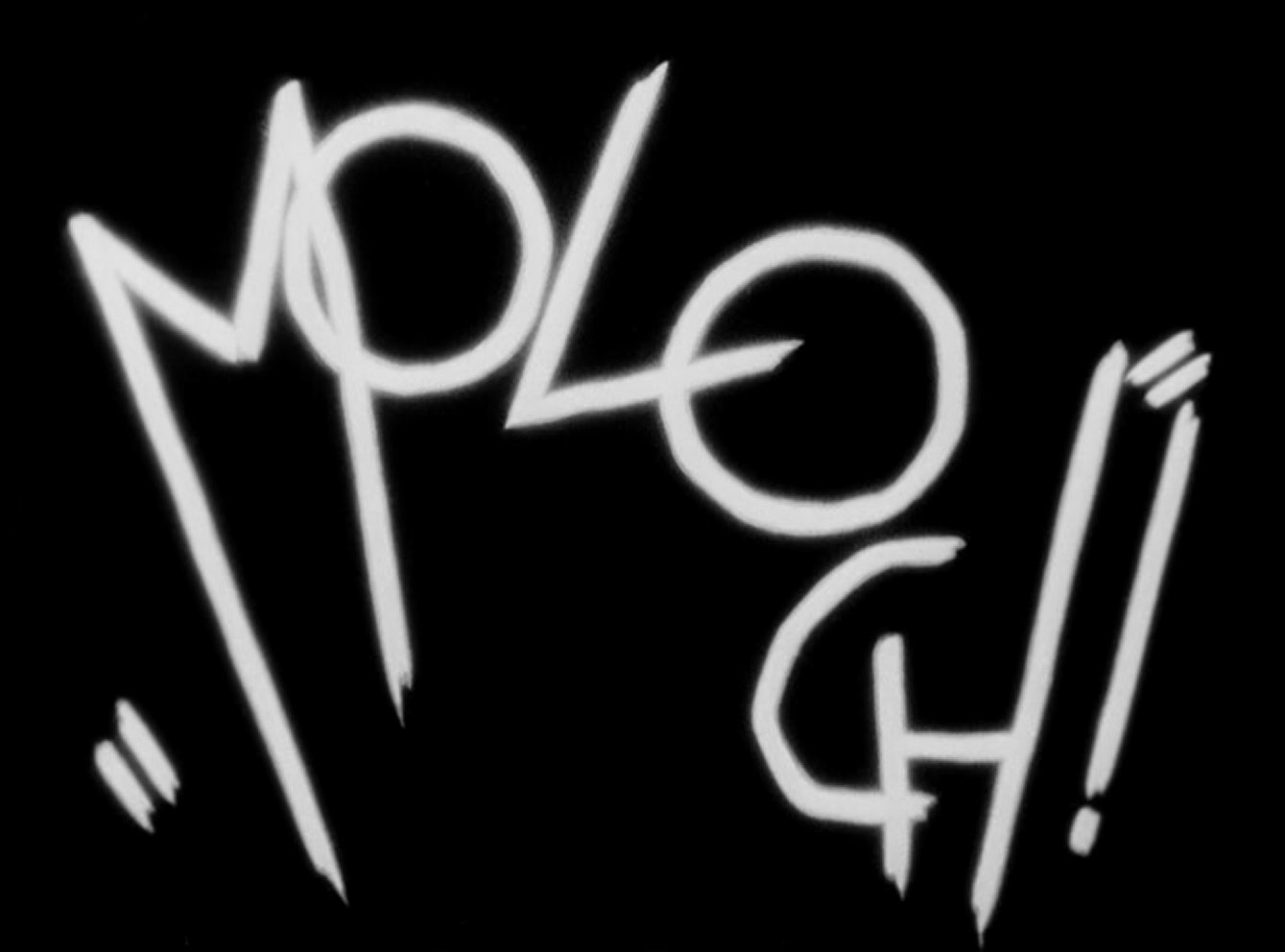This question is about the 1927 film Metropolis. Since Metropolis may not be considered as sci-fi as other material discussed on this site, I can ask this on movie.se?
I had always wondered when Freder goes down and sees the workers and the machine over loads and some stylized text appears on the screen.
I thought it said "MOLOGH" but a Google search turns up "Moloch". I don't know this word? I searched and Wikipedia has
In Fritz Lang's Metropolis, the industrial machinery of the factory is envisioned as a sacrificial temple to Moloch.
Is this right? The picture in the wiki article looks like a bull and the machine in the film didn't. I'm not well versed in religion but could someone explain Moloch in simpler terms? I thought Christians and Jews didn't believe in any other gods or figure? Was this Freder imagining the machine was Mologh or did it actually happen?
I also found it interesting that the first group of men to be sacrificed were dragged in by guards, but then the rest marched in groups in an orderly fashion in an almost mechanically unconscious way. Maybe that's an allusion to fascism?

